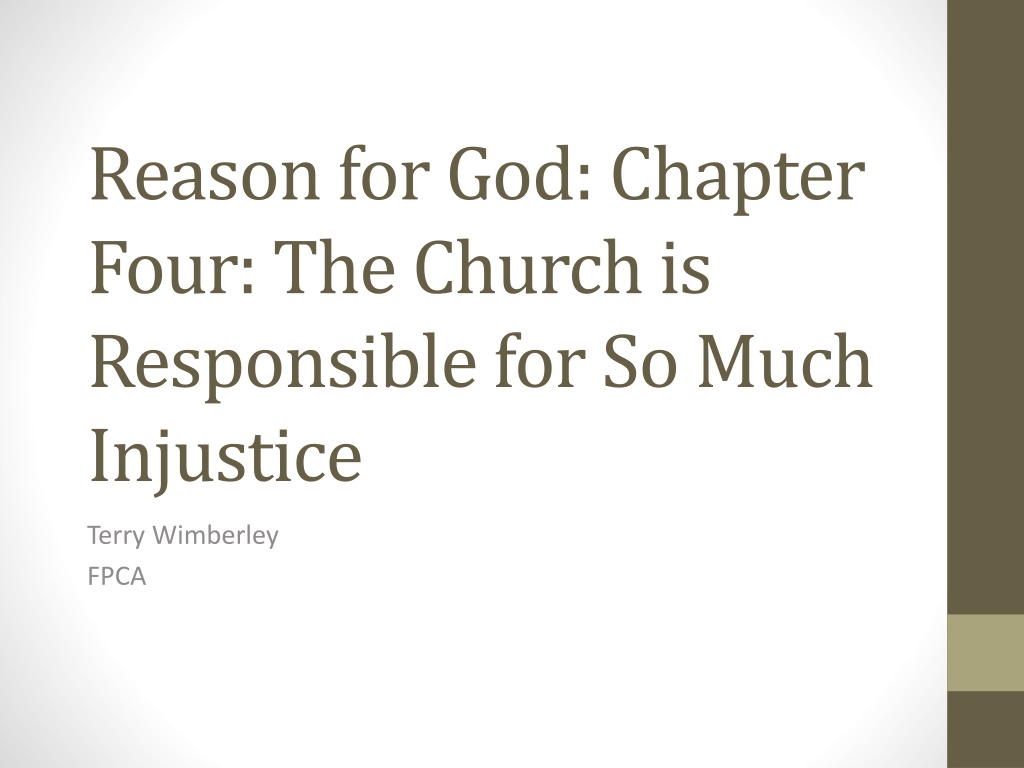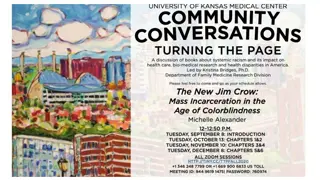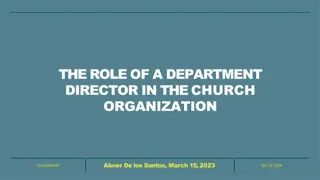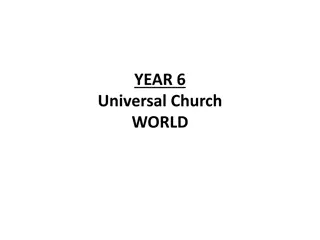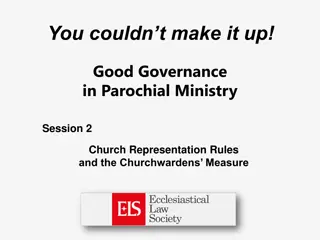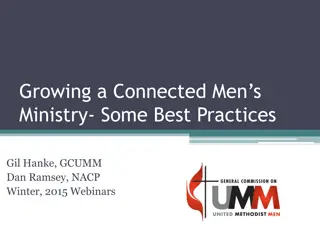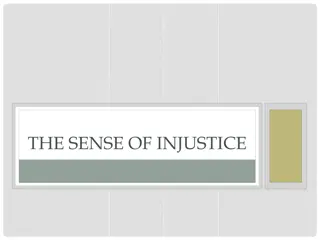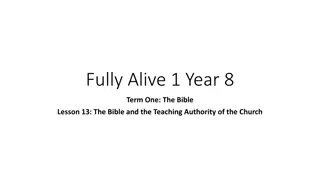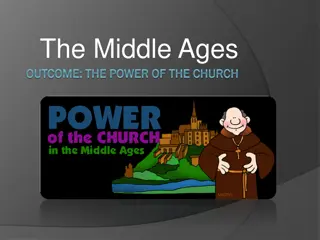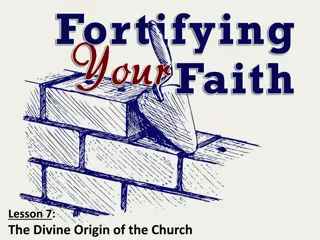Understanding the Church's Role in Addressing Injustice
Christianity acknowledges the imperfection of its followers and offers a solution in Jesus. Despite the church's history of injustice and hypocrisy, it serves as a place for flawed individuals seeking redemption. Questions explore perceptions of judgmentalism, hypocrisy, and the presence of broken yet significant figures in the Bible.
Download Presentation

Please find below an Image/Link to download the presentation.
The content on the website is provided AS IS for your information and personal use only. It may not be sold, licensed, or shared on other websites without obtaining consent from the author. Download presentation by click this link. If you encounter any issues during the download, it is possible that the publisher has removed the file from their server.
E N D
Presentation Transcript
Reason for God: Chapter Four: The Church is Responsible for So Much Injustice Terry Wimberley FPCA
Opening Thought In this peculiar way, Christianity is internally consistent the church is full of sinners because in order to be a Christian a person has to admit that he or she is a sinner. In other words, it is not really a surprise that Christians sin, that there is an inconsistency between what they say and what they do, because the Bible explains again and again why people s hearts are drawn toward selfishness and pride and so on. The Bible says this is how you should live if you believe this but it also says you can t and you wont and provides a solution to that problem in Jesus. Christianity, unlike other religions or self-help programs, acknowledges it cannot be followed perfectly.
The Objection People feel that they cannot identify with an institution such as the church or with Christian individuals when they see such an appalling record of injustice or hypocrisy.
Questions for Discussion One One of the video participants said, I think the objectionable Christians that I ve seen [struggle with loving their neighbor] I see them being judgmental, I see them being extremely self- righteousness, and I see them holding people that they deem to be sinners to a different standard than they would themselves, and I find that to be extremely problematic. What do you think about this statement? Do you know people who feel this way?
Questions for Discussion Two & Three How would you answer the charge that the church is judgmental and full of hypocrites? The video host said, Why wouldn t a church be a place where you would find inconsistent, broken people who don t always get it right? Can you give examples of people from the Bible who are thought of as great or important figures, but who were also broken or flawed in some way?
Questions for Discussion Four In his book God is Not Great, Christopher Hitchens addresses a hypothetical question he was asked on a panel with radio host Dennis Prager: If he were alone in an unfamiliar city at night, and a group of strangers began to approach him, would he feel safer or less safe, knowing that these men had just come from a prayer meeting?
Questions for Discussion Five In his book God is Not Great, Christopher Hitchens answers, Just to stay within the letter B, I have actually had that experience in Belfast, Beirut, Bombay, Belgrade, Bethlehem, and Baghdad. In each case I would feel immediately threatened if I thought that the group of men approaching me in the dusk were coming from a religious observance Hitchens then gives detailed descriptions of the tense social and political situations within these cities, which he attributes to religion. Many people believe that religions like Christianity inevitably lead to violence and oppression. How do you respond?
Final Thought The effect of the Christian message is that it changes your identity. Your identity becomes defined by what God has done for you in Jesus, in what God thinks of you in Jesus. If that identity is not beginning to show itself in your attitude toward other races and classes, toward the poor and oppressed, toward people who differ from you in their opinions or beliefs, you may say that you have faith but your faith is dead.
